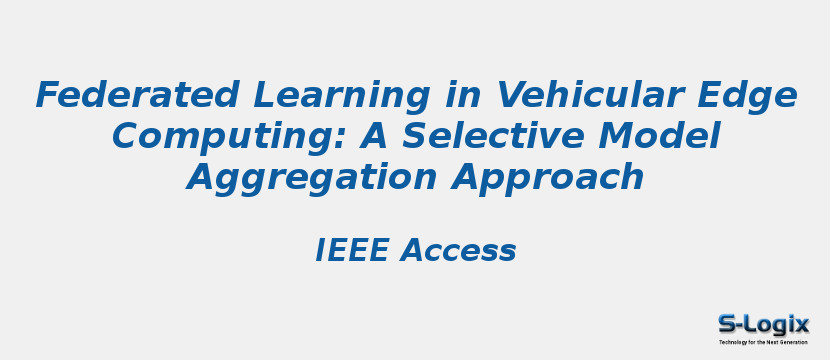Research Area: Vehicular Ad Hoc Networks
Federated learning is a newly emerged distributed machine learning paradigm, where the clients are allowed to individually train local deep neural network (DNN) models with local data and then jointly aggregate a global DNN model at the central server. Vehicular edge computing (VEC) aims at exploiting the computation and communication resources at the edge of vehicular networks. Federated learning in VEC is promising to meet the ever-increasing demands of artificial intelligence (AI) applications in intelligent connected vehicles (ICV). Considering image classification as a typical AI application in VEC, the diversity of image quality and computation capability in vehicular clients potentially affects the accuracy and efficiency of federated learning. Accordingly, we propose a selective model aggregation approach, where “fine” local DNN models are selected and sent to the central server by evaluating the local image quality and computation capability. Regarding the implementation of model selection, the central server is not aware of the image quality and computation capability in the vehicular clients, whose privacy is protected under such a federated learning framework. To overcome this information asymmetry, we employ two-dimension contract theory as a distributed framework to facilitate the interactions between the central server and vehicular clients. The formulated problem is then transformed into a tractable problem through successively relaxing and simplifying the constraints, and eventually solved by a greedy algorithm. Using two datasets, i.e., MNIST and BelgiumTSC, our selective model aggregation approach is demonstrated to outperform the original federated averaging (FedAvg) approach in terms of accuracy and efficiency. Meanwhile, our approach also achieves higher utility at the central server compared with the baseline approaches.
Keywords:
Author(s) Name: Dongdong Ye; Rong Yu; Miao Pan; Zhu Han
Journal name: IEEE Access
Conferrence name:
Publisher name: IEEE
DOI: 10.1109/ACCESS.2020.2968399
Volume Information: ( Volume: 8) Page(s): 23920 - 23935
